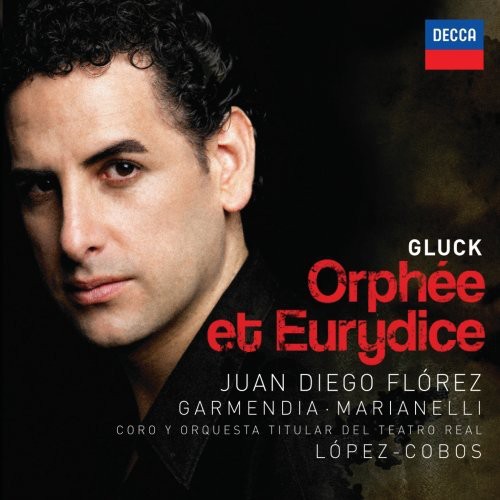Show results for
Deals
- 4K Ultra HD Sale
- Action Sale
- Alternative Rock Sale
- Anime sale
- Award Winners Sale
- Bear Family Sale
- Blu ray Sale
- Blues on Sale
- British Sale
- Classical Music Sale
- Comedy Music Sale
- Comedy Sale
- Country Sale
- Criterion Sale
- Electronic Music sale
- Fantasy Film and TV
- Folk Music Sale
- Hard Rock and Metal Sale
- Horror Sci fi Sale
- Jazz Sale
- Kids and Family Music sale
- Kids and Family Sale
- Metal Sale
- Music Video Sale
- Musicals on Sale
- Mystery Sale
- Naxos Label Sale
- Page to Screen Sale
- Paramount Sale
- Pop and Power Pop
- Rap and Hip Hop Sale
- Reggae Sale
- Rock and Pop Sale
- Rock Legends
- Soul Music Sale
- TV Sale
- TV Sale
- Vinyl on Sale
- War Films and Westerns on Sale

Orphee Et Eurydice
- Format: CD
- Release Date: 5/4/2010

Orphee Et Eurydice
- Format: CD
- Release Date: 5/4/2010
- Composers: Christoph Willibald Gluck
- Conductors: Jesus L pez-Cobos, Jesús López-Cobos
- Orchestras: Orquesta Sinf nica de Madrid, Orquesta Sinfónica De Madrid
- Performers: Ainhoa Garmendia, Alessandra Marianelli, Coro Sinf nica De Madrid, Coro Sinfónica De Madrid, Juan Diego Flórez, Madrid Symphony Chorus
- Label: Decca
- Number of Discs: 2
- UPC: 028947821977
- Item #: DEC782197
- Genre: Classical
- Release Date: 5/4/2010
- This product is a special order

Product Notes
Juan Diego Florez stars as the musician and poet Orpheus in Gluck's mythical opera of love and loss. Following acclaimed performances at the Teatro Real in Madrid, Juan Diego Florez records his first major opera role outside the bel canto repertoire, as he stars as Orphee Gluck's most enduringly popular opera, sung in the original French of his 1774 Paris version. Includes the much-loved aria 'J'ai perdu mon Eurydice' ('Che faro senza Euridice') sung by Juan Diego Florez, and the popular 'Dance of the Blessed Spirits'. Eurydice is sung by rising Spanish soprano Ainhoa Garmendia, with soprano Alessandra Marianelli as L'Amour. Twelve years after the Vienna premiere of his original Italian version, Gluck adapted his opera for Parisian audiences. Apart from the change of language, the most significant difference is that the central role, sung in the Italian version by a castrato, was rewritten for the particular kind of high tenor voice that French audiences adored.

